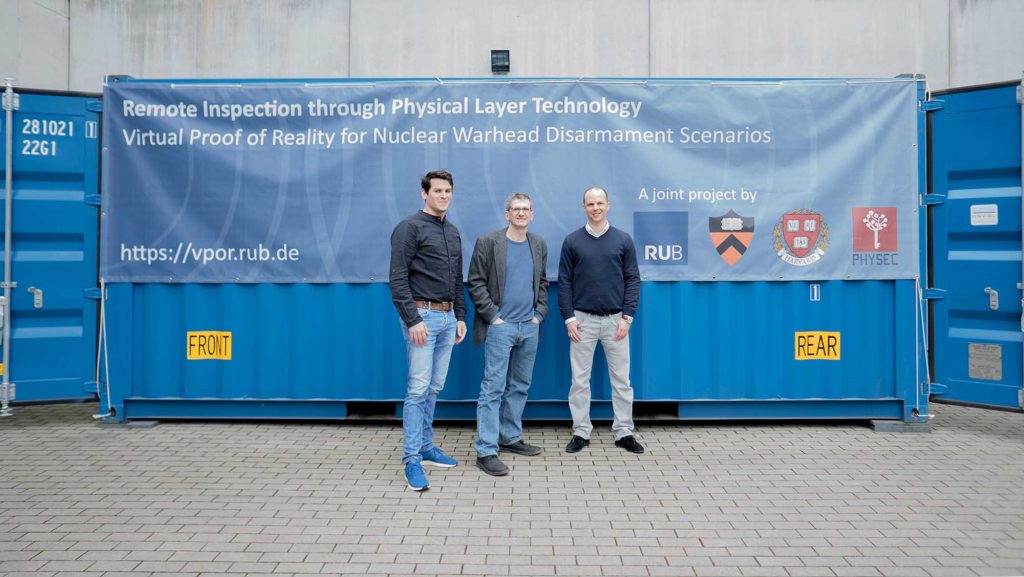PHYSEC is a Spin-off of the Horst Görtz Institute for IT Security (HGI) in Bochum. Through the unique combination of cryptography and radio-wave engineering, PHYSEC offers innovative security solutions for IoT applications based on latest research results. PHYSEC represents a fundamental differentiable IT security paradigm that reaches cyber and physical security goals. PHYSEC provide IoT security from the device’s physics through the connectivity up to the IoT-platform, and thereby, establishes highly efficient post-quantum resistant keys and prove cryptographically the physical integrity, authenticity and condition of virtually any object.
Easy Engineering: What are the main areas of activity of the company?
PHYSEC: Cyber-physical system and ecosystem security is the major goal of our partners and customers. Our speciality is our physical integrity assessment and monitoring solution SEAL. Our hardware security anchor is equipped with our radar-like sensor to measure the fingerprint 3D objects on device. Therefore, we are able to proof not just the digital authenticity and integrity, but also the corresponding aspects of the physical device.
Device- or system-level security is currently an important requirement for the life-cycle-security of edge-server, critical infrastructure components and medical devices. In the future it will be a fundamental aspect of every connected object.

E.E: What’s the news for 2021 about new products?
PHYSEC: Q1/2021 we will introduce our managed solution SEAL to the open market. With SEAL our partners can easily assess time variant complex 3D-objects with respect to anomalies as well as to known and unknown physical states. SEAL provides standards APIs to, for example, asset management systems or SIEM.
E.E: What are the ranges of traded products?
PHYSEC: Today we are focused on the EU market. However, we are going to start global business with system integrators. We are open for new collaborations.
E.E: At what stage is the market where you are currently active?
PHYSEC: 1. The market for critical infrastructure components, e.g., smart grid sensor communication unites, is distinct growing. 2. The market for edge computing is in early stage. However, the problem we solve for servers in distributed and less secure operational environments is well known. Current solutions for product integrity are based on trust, multi-layer risk reduction approaches and complex policies for manufacturing, supply chain, integration, and operations. PHYSEC solves the problem and replaces the complex solution conglomerate with a single technology. 3. The market for medical devices is in the earliest stage. The insurance companies have understood that „Ensure AI” is important and therefore the integrity of sensor data is mandatory. However, the ecosystem needs more regulation or standards for such an extended telematic infrastructure.
E.E: What can you tell us about market trends?
PHYSEC: Amidst the enthusiasm about emerging markets such as IoT in critical infrastructures and edge computing, the concern about cyber securities threats has been growing, proving a favourable market environment for our product. The European Union has recognized that cyber-security and cyber-defence are critical for both its prosperity and security. The potential of edge computing in critical infrastructure is enormous. Numerous promising solutions, such as 5G communication, autonomous driving and industry 4.0 or IIoT, are only made possible by this new technology. These new infrastructures create a wide range of economic opportunities, but also an increasing dependence of society on the new technologies. The distribution of critical infrastructures must always be ensured. When edge computing changes the paradigm from centralised to decentralised server locations, the security standard of the server hardware must also be adopted. Currently, central servers are located in high-security data centres, which provide physical barriers and access controls. Since decentralized server locations mean a highly expanding number of areas to be protected, the construction of an extensive number of new high-security server locations is expensive, time-consuming and requires an enormous amount of space.

E.E: What estimations do you have for 2021?
PHYSEC: In the years to come, we expect a huge push into the direction of trustworthy hardware and supply chain security. There will be a new market for “Product Identity”. It is already measurable in the pharma industry with respect to fake drugs and will be extended to all goods.
